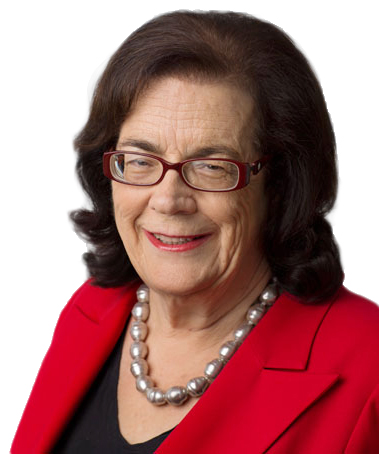Andrew Norton says the changes raise questions of fairness, writes political columnist MICHELLE GRATTAN.
THE government’s higher education changes, announced last week, appear driven by three factors. How you judge the result will depend on where you sit.

In sum, the shake up will reduce student fees for courses in areas the government identifies as potentially job-rich and increase them for the humanities and certain other courses to produce a result that’s funding-neutral for the government.
The first driver of the policy is the surge in demand for places. This is coming both from what’s dubbed “the Costello baby boom” (“have one for mum, one for dad and one for the country,” Peter Costello said when treasurer) and from the COVID-flattened economy, which will stop many young people taking a gap year.
The government wants to manage this pressure without having to fork out more money.
Secondly, the changes reflect Scott Morrison’s overwhelming preoccupation with jobs. This is the main element in both his rhetoric and his policy across government. When he announced recently the national cabinet would be made permanent, he said its singular focus would be jobs.
While it is understandable that at the moment most issues are being seen through the employment prism, in the longer term a government’s lens should be wider. Work (with the opportunity to obtain it) is critical to the well-being of the individual and the community. At the same time it is not everything, certainly not if people are to have rounded and fulfilling lives.
Finally, there does seem to be an ideological tinge to the policy, notably in the treatment of the humanities. The cost for these courses will rise by a massive 113 per cent. This compares with hikes of 28 per cent for law and commerce.
There is an anti-intellectual streak in this government, with ministers unsympathetic towards universities, which many of them see as breeding grounds for left-leaning activists. Education Minister Dan Tehan, for one, has been very critical of what he has identified as curbs on free speech in the universities.
This government and its prime minister are a very long way from Liberal Party founder Robert Menzies’s views. Menzies saw as one of his major achievements the expansion of Australia’s universities, and he had a broad view of higher education.
David Furse-Roberts wrote in a Quadrant article titled, “A Rugged Honesty of Mind: Menzies and Education”: “Far from functioning merely as utilitarian ‘degree factories’ to churn out the greatest volume of graduates, Menzies esteemed universities as the great nurseries of civilisation. In addition to equipping undergraduates with essential training and vocational skills, the university would serve to cultivate the character of students and encourage them to seek truth and beauty in their chosen discipline.”
Menzies strongly defended the humanities (although it has been noted the “humanities” as taught in universities of his day looked rather different from much of today’s content). And, it should be added, universities then did not teach the wide range of vocational courses they do today.
The Morrison government takes a basically “utilitarian” view of universities. Indeed, universities have made themselves very utilitarian, as they have transformed into giant businesses – substantially in response to governments of both persuasions pushing them on the revenue front.
This strengthened the Australian economy, as higher education ballooned into a massive export sector.
But COVID has brought home the over-dependence of our universities on foreign students, for many thousands of whom they are now desperately trying to find a passage back.
It is not just the financial position of institutions that has been compromised by excessive reliance on overseas students, who pay so much more than the domestic cohort.
So have some academic standards, although this is not often publicly admitted. One hears frequent complaints, for example, from domestic students who find themselves working (and assessed) in groups with overseas students who have limited English language skills. And some staff feel under the pump to pass foreign students.
The COVID crisis should mark a point where universities take stock of how they are managing the trade offs between foreign income on the one hand and educational standards and the needs of domestic students on the other.
Coming back to the Tehan package for domestic students, the reaction has been predictably diverse, according to how various stakeholders see it affecting them. The winners are applauding; the losers cross.
In terms of its broad effects Andrew Norton, professor in the Practice of Higher Education Policy at the Australian National University, believes it will not alter students’ choices substantially.
He tells The Conversation that student course choices are primarily driven by their interests. For most of them, that includes the career they hope for after finishing their degree. Students with firm goals would not change a fundamental life choice due to a change in fees, he says. Students who are less clear about exactly what kind of job they want after finishing their career will only choose within their range of interests.
Norton argues that if some students are not aware of courses that might interest them, then improved careers advice and course marketing would be a better solution than shuffling hundreds of millions of dollars in student payments between courses.
He says the changes raise questions of fairness. While those benefitting from lower fees, such as students undertaking teaching and nursing, will pay off their student debts more quickly than under the current system, those graduating from the humanities could be saddled with debt for decades. “This mix of windfall gains and heavy new debt burdens seems unnecessary to achieve the policy goal of improving graduate employment outcomes.”
The government will need to get its changes through the Senate. When it launched a sweeping plan to deregulate fees some years ago, it could not obtain parliamentary approval. It stresses this is not deregulation, but whether it will be more successful with this proposal remains to be seen.
Michelle Grattan is a professorial fellow at the University of Canberra. This article was originally published on The Conversation.
Who can be trusted?
In a world of spin and confusion, there’s never been a more important time to support independent journalism in Canberra.
If you trust our work online and want to enforce the power of independent voices, I invite you to make a small contribution.
Every dollar of support is invested back into our journalism to help keep citynews.com.au strong and free.
Thank you,
Ian Meikle, editor





Leave a Reply